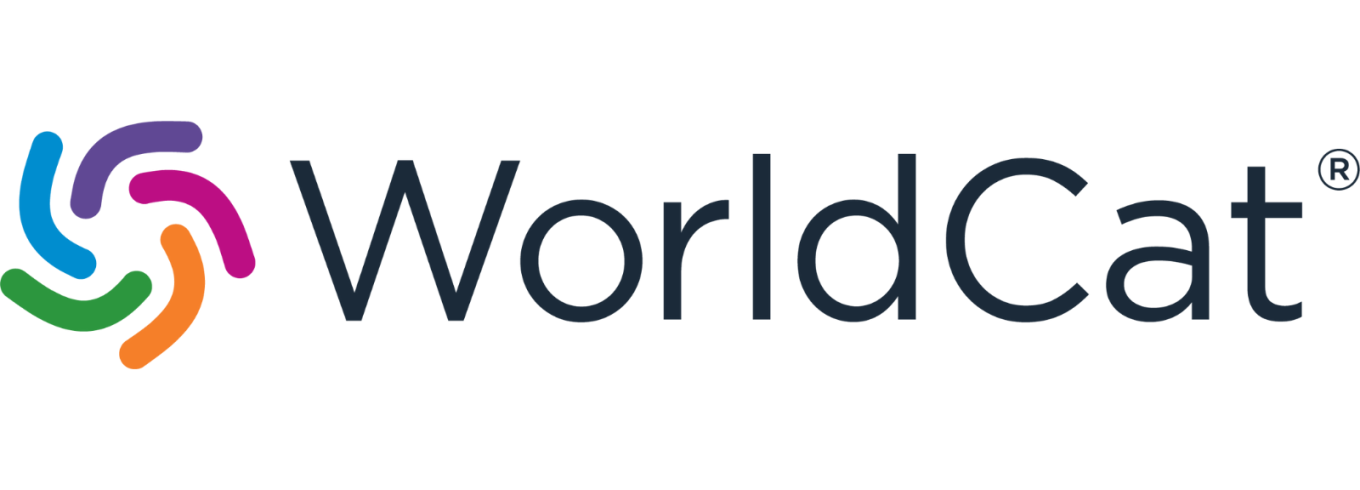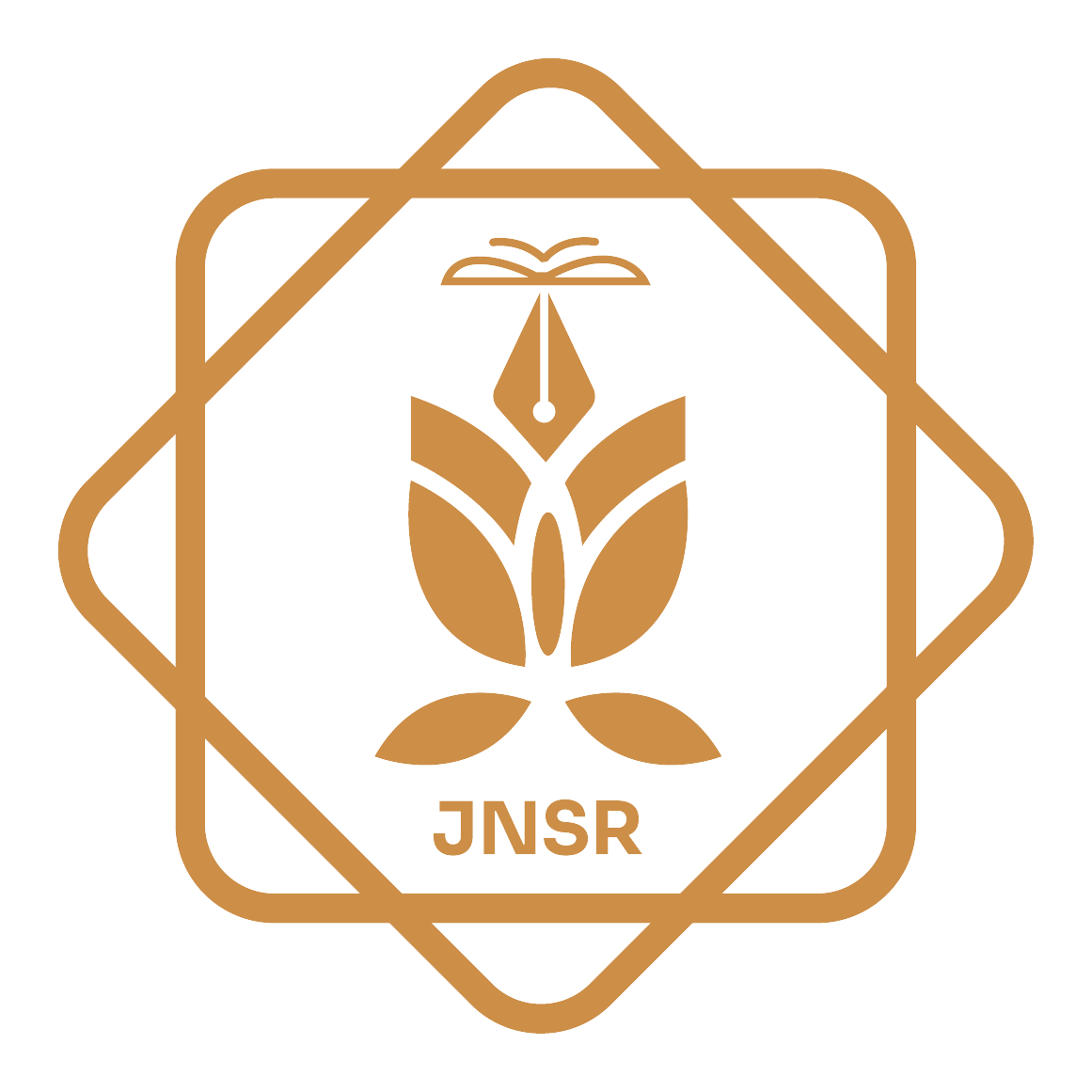Evaluation of the Physicochemical Properties of Different Imported Milk Brands Offered in Afghanistan Markets
DOI:
https://doi.org/10.62810/jnsr.v2i1.41Keywords:
Milk, Physicochemical Properties, Fat, Protein, Specific GravityAbstract
Milk is an enriched food that humans widely consume. It is the source of many nutrients like protein, fat, carbohydrates, vitamins, and minerals. The content of high-quality milk should match that of natural milk and national and international standards. In the current study, the quality of selected imported milk brands (Pak1, Pak2, Pak3, Pak4, and Ir1) and local cow milk in the markets of Kabul City was evaluated. For this purpose, the levels of protein, fat, total solid, solid not fat, acidity, pH, and specific gravity were measured. Data analysis was conducted using the Kruskal-Wallis test in GraphPad Prism software. Our findings showed that the protein level in imported brands was significantly lower than the standard of cow milk (p<0.01). Among imported brands, the protein level in Ir1 and Pak4 was higher than other brands and the standard (p<0.05). The level of fat in Pak2 and Pak3 was higher than the standard and other brands (p<0.05), the level of total solid in Ir1 was lower than the standard (p<0.05), and the level of solid not fat in Pak2 and Pak3 was lower than the standard (p<0.05). Our results showed that local cow milk has a higher quality than imported milk brands, and among the brands, Pak4 has a higher quality than other brands, where its quality is almost the same as the composition of local cow milk.
Downloads
References
Ahmad, M. S., Charkhi, W., & Stanikzai, M. J. (2023). Preliminary evaluation of the current generation, breeding, and preliminary milk of dairy cows in Baghlan province, Afghanistan. Academic research in educational sciences, 4(6), 153-163. https://cyberleninka.ru/article/n/preliminary-evaluation-of-the-current-generation-breeding-and-milk-preliminary-of-dairy-cows-in-baghlan-province-afghanistan
AOAC (Association of Official Analytical Chemists). (2000). Official Methods of Analysis International, 17th Ed. AOAC, Washington, DC. https://www.scirp.org/reference/ReferencesPapers?ReferenceID=1687699
AOAC (Association of Official Analytical Chemists). (2005). “Official methods of analysis.” The association of official analytical chemists. 18th edition. 481. North Fredrick Avenue Gaithersburg, Maryland, USA. https://www.scirp.org/reference/ReferencesPapers?ReferenceID=1763751
COSMT. (2001). Milk – Determination of fat content (Routine method) [in Czech: Mléko - Stanovení obsahu tuku (Rutinní metoda)]. CSN ISO 2446:2001. Prague: Czech Office for Standards, Metrology and Testing. https://www.technicke-normy-csn.cz/csn-iso-2446-570543-210393.html#
Bansal, S., & Bansal, R. C. (2015). Dairy: Processing & quality assurance. In Dairy Production and Processing: The Science of Milk and Milk Products (pp. 389-405). John Wiley & Sons. https://doi.org/10.1002/9781118810279.ch01 DOI: https://doi.org/10.1002/9781118810279.ch01
Bauman, D. E., & Griinari, J. M. (2003). Nutritional regulation of milk fat synthesis. Annual Review of Nutrition, 23(1), 203-227. https://doi.org/10.1146/annurev.nutr.23.011702.073408 DOI: https://doi.org/10.1146/annurev.nutr.23.011702.073408
Derek, Headey. (2023). Can dairy help solve the malnutrition crisis in developing countries? An economic analysis. Animal Frontiers. DOI: 10.1093/af/vfac083 DOI: https://doi.org/10.1093/af/vfac083
Dos Santos Pereira EV, de Sousa Fernandes DD, de Araújo MCU, Diniz PHGD, Maciel MIS. (2020). Simultaneous determination of goat milk adulteration with cow milk and their fat and protein contents using NIR spectroscopy and PLS algorithms. Lwt, 127, 109427. https://doi.org/10.1016/j.lwt.2020.109427 DOI: https://doi.org/10.1016/j.lwt.2020.109427
Dutch Committee for Afghanistan – Livestock Programs. (2018). Annual report of Kabul, Afghanistan. Retrieved from. https://dca-livestock.org/wp-content/uploads/2021/12/1-L02-028-DCA-VET-jaarverslag-2018-LR.pdf.
Ekpa E, Onuh ME. (2018). Physico-chemical studies on some commercially available milk samples sold within Lokoja Metropolis of Kogi State, Nigeria. Arch. Diary Res. Techn. DOI: 10.29011/ADRT-101. 000001
Fahmid S, Sajjad A, Khan M, Jamil N, Ali J. (2016). Determination of the chemical composition of milk marketed in Quetta, Pakistan. Int. J. Adv. Res. Biol. Sci, 3(5), 98-103. http://s-o-i.org/1.15/ijarbs-2016-3-5-14
Fox, P. F., McSweeney, P. L. H., Cogan, T. M., & Guinee, T. P. (Eds.). (2017). Fundamentals of cheese science. Springer. https://link.springer.com/book/10.1007/978-1-4899-7681-9 DOI: https://doi.org/10.1007/978-1-4899-7681-9
Gemechu T. (2015). Review on lactic acid bacteria function in milk fermentation and preservation. African Journal of Food Science, 9(4), 170-175. https://doi.org/10.5897/AJFS2015.1276 DOI: https://doi.org/10.5897/AJFS2015.1276
Gemechu, T., & Amene, T. (2016). Physicochemical properties and microbial quality of raw cow milk produced by smallholders in Bench Maji-Zone, Southwestern Ethiopia. Food Science and Quality Management. 54, 47-54. https://edepot.wur.nl/647391#page=251
Gemechu, T., Beyene, F., & Eshetu, M. (2015). Physical and chemical quality of raw cow milk produced and marketed in Shashemene Town, Southern Ethiopia. ISABB Journal of Food and Agricultural Sciences, 5(2), 7-13. https://doi.org/10.5897/ISABB-JFAS2014.0017
Getachew F. (2003). “Assessments report on the dairy sub-sector in Ethiopia.” FAO (Food and Agriculture Organization of the United Nations), Rome, Italy. https://www.fao.org/fileadmin/templates/ags/docs/dairy/P1assessmentcoverethiopia.pdf
Haug, A., Høstmark, A. T., & Harstad, O. M. (2007). Bovine milk in human nutrition–a review. Lipids in Health and Disease, 6(1), 1-11. https://link.springer.com/article/10.1186/1476-511X-6-25 DOI: https://doi.org/10.1186/1476-511X-6-25
Heaney, R. P., & Weaver, C. M. (2003). Calcium and vitamin D. Endocrinology and Metabolism Clinics of North America, 32(1), 181-194. https://doi.org/10.1016/S0889-8529(02)00063-4 DOI: https://doi.org/10.1016/S0889-8529(02)00063-4
Kala R, Samková E, Pecová L, Hanuš O, Sekmokas K, Riaukienė D. (2018). An overview of determination of milk fat: Development, quality control measures, and application. Acta Universitatis Agriculturae et Silviculturae Mendelianae Brunensis, 66(4), 1055-1064. DOI: 10.11118/actaun201866041055 DOI: https://doi.org/10.11118/actaun201866041055
Kalimoldina, L. M., Abdykarimova, A. P., & Alipbaev, A. N. (2021). Determination of casein in milk. Int. j. Herald of Almaty Technological University. (1), 32-38. http://hdl.handle.net/123456789/2283 DOI: https://doi.org/10.48184/2304-568X-2021-1-32-38
Ketema, H., Bekuma, A., Eshetu, M., & Effa, K. (2018). Chemical quality of raw cow’s milk detection and marketing system in Walmera district of Oromia regional state, Ethiopia. Int. J. Adv. Res. Biol. Sci, 5(10), 38-44 http://dx.doi.org/10.22192/ijarbs.2018.05.10.003
Marco, M. L., Heeney, D., Binda, S., Cifelli, C. J., Cotter, P. D., Foligne, B., ... & Smid, E. J. (2017). Health benefits of fermented foods: microbiota and beyond. Current Opinion in Biotechnology, 44, 94-102. https://doi.org/10.1016/j.copbio.2016.11.010 DOI: https://doi.org/10.1016/j.copbio.2016.11.010
Ministry of Agriculture, Irrigation and Livestock (MAIL). (2020). Dairy industry development in all provinces of Afghanistan-project background, Kabul, Afghanistan. Retrieved from. https://www.moore.af/MediaLibsAndFiles/media/afghanistan.moore-global.com/files/Investment-Opportunities/9-Afghanistan-Dairy-Industry.pdf
Moheghi MM. (2017). Inspection of the imported and internally produced food products from the point of sanitation and quality.DOI: 10.9790/2380-1002017782 DOI: https://doi.org/10.9790/2380-1002017782
Naeimi M, Almas MM. (2021). A Prospective Overview of Animal Husbandry, Milk Production, Consumption and its Marketing in Baghlan Province; Afghanistan. https://ijisrt.com/assets/upload/files/IJISRT21JUL124.pdf
Nicholson, C. F., Mwangi, L., Staal, S. J., & Thornton, P. K. (2003). Dairy cow ownership and child nutritional status in Kenya.
Norn V. (2015). Food grade emulsifiers and their applications in dairy products. In Emulsifiers in Food Technology. John Wiley & Sons. DOI:10.1002/9781118921265 DOI: https://doi.org/10.1002/9781118921265
O’Connor CB. (1995). Rural Dairy Technology ILRI Training Manual I. International Livestock Research Institute, Addis Ababa, Ethiopia. https://cgspace.cgiar.org/items/04b2e2ce-d841-4818-8cc3-217c9a742fc7
Pal M. (2017). Milk adulteration is a growing public health issue. Food and Beverage Processing, 30-31. https://www.researchgate.net/publication/318361022_Milk_adulteration_a_growing_public_health_issue#fullTextFileContent
Patel KJ, Boghra VR. (2018). Modifications in Richmond formula for calculating Solids-not-fat/Total solid percent in cows’ milk in Gujarat State. Asian Journal of Dairy and Food Research, 37(4), 278-282. DOI: 10.18805/ajdfr.DR-1312 DOI: https://doi.org/10.18805/ajdfr.DR-1312
Pereira PC. (2014). Milk nutritional composition and its role in human health. Nutrition, 30(6), 619-627. https://doi.org/10.1016/j.nut.2013.10.011 DOI: https://doi.org/10.1016/j.nut.2013.10.011
Poonia A, Jha A, Sharma R, Singh HB, Rai AK, Sharma N. (2017). Detection of adulteration in milk: A review. International journal of dairy technology, 70(1), 23-42. https://doi.org/10.1111/1471-0307.12274 DOI: https://doi.org/10.1111/1471-0307.12274
Rahimi, H., Fazli, G. R., & Anwari, S. A. (2019) Investigating the Production Differences of Generations of Foreign Cows with Kandhari in Environmental Conditions of Afghanistan. International Journal of Science and Research.DOI: 785-789 10.21275/SR20505114143
Scholz-Ahrens, K. E., Ahrens, F., & Barth, C. A. (2020). Nutritional and health attributes of milk and milk imitations. European journal of nutrition, 59, 19-34. https://link.springer.com/article/10.1007/s00394-019-01936-3 DOI: https://doi.org/10.1007/s00394-019-01936-3
Shaikh N, Soomro AH, Sheikh SA, Khaskheli M. (2013). Extent of water adulteration and its influence on physical characteristics of market milk. Pakistan Journal of Nutrition, 12(2), 178. 10.3923/pjn.2013.178.181 DOI: https://doi.org/10.3923/pjn.2013.178.181
Sharma, R., Kumar, R., & Singh, R. (2012). Milk adulteration and detection: A review. International Journal of Food Properties, 15(3), 563-569. DOI: 10.1166/sl.2016.3580 DOI: https://doi.org/10.1166/sl.2016.3580
Shinawy HH, El-Kholy AM, Zeinhom M, Gaber AY. (2018). Detection of adulteration in milk and some dairy products. Assiut Veterinary Medical Journal, 64(157), 1-10. DOI: 10.21608/avmj.2018.166615 DOI: https://doi.org/10.21608/avmj.2018.166615
Tesfay T, Kebede A, Seifu E. (2015). The physicochemical properties of cow milk are produced and marketed in Dire Dawa Town, eastern Ethiopia. Food Science and Quality Management, 42, 56-61. https://citeseerx.ist.psu.edu/document?repid=rep1&type=pdf&doi=a46439cfb1fe060fe0de4342d3318b3ad5b3fe6b
Thorning, T. K., Raben, A., Tholstrup, T., Soedamah-Muthu, S. S., Givens, I., & Astrup, A. (2016). Milk and dairy products: good or bad for human health? An assessment of the totality of scientific evidence. Food & Nutrition Research, 60(1), 32527. https://doi.org/10.3402/fnr.v60.32527 DOI: https://doi.org/10.3402/fnr.v60.32527
Tirfie, F. W. (2023). A Review of Genetic and Non-Genetic Parameter Estimates for Milk Composition of Cattle. Sciences, 11(3), 64-70. DOI: 10.11648/j.avs.20231103.12 DOI: https://doi.org/10.11648/j.avs.20231103.12
Wagner, C. L., Greer, F. R., & American Academy of Pediatrics Section on Breastfeeding, (2008). Prevention of rickets and vitamin D deficiency in infants, children, and adolescents. Pediatrics, 122(5), 1142-1152. DOI: 10.1542/peds.2008-1862 DOI: https://doi.org/10.1542/peds.2008-1862
Woźniak, D., Cichy, W., Dobrzyńska, M., Przysławski, J., & Drzymała-Czyż, S. (2022). Reasonableness of Enriching Cow’s Milk with Vitamins and Minerals. Foods, 11(8), 1079. https://doi.org/10.3390/foods11081079 DOI: https://doi.org/10.3390/foods11081079
Zhang X, Chen X, Xu Y, Yang J, Du L, Li K, Zhou Y. (2021). Milk consumption and multiple health outcomes: Umbrella review of systematic reviews and meta-analyses in humans. Nutrition & metabolism, 18(1), 1-1. https://doi.org/10.1186/s12986-020-00527-y DOI: https://doi.org/10.1186/s12986-020-00527-y
Downloads
Published
How to Cite
Issue
Section
License
Copyright (c) 2024 Mohammad Asif Noori, Nasir Ahmad Sarwary, Sayed Ibrahim Farkhary

This work is licensed under a Creative Commons Attribution-NonCommercial 4.0 International License.

























